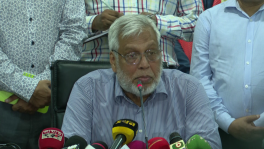Why ownership and control should be separated in a company
Family ownership in Bangladesh is very common and family owners as directors are usually perceived as active, hardworking and loyal. Company owners are also usually unwilling to accept independent directors in the companies, as they do not want to lose control over the company

The separation of ownership and control is a common practice in modern corporate governance, which keeps the shareholders out of managerial responsibilities and empowers the directors to take day-to-day decisions to run corporations smoothly.
In modern corporate governance, the separation of ownership and control permits some hierarchical decision-making which indirectly creates multiple conflicts among the shareholders and directors.
The investors may not know what really happens within the company and the directors or employees always cannot imagine what the shareholders are thinking regarding any important matter.
In Bangladesh, a large number of listed companies are actually owned and managed by family members and their peers, who make policies as board of directors or board members. The family board members can control the actual executive functions of the company, as they do not keep any scope for the independence of the board.
The practice of family ownership in Bangladesh is very common and family owners as directors are perceived as being very active, hardworking and loyal. Company owners are usually unwilling to accept independent directors in the companies, as they also do not want to lose control over the company.
But the separation of ownership and control is beneficial in many ways. Hierarchical decision making sometimes can be more efficient than the market allocation of decisions under certain conditions. In this regard, directors exercise the hierarchical position and they can take several important decisions for the smoothness of the company or corporation.
Moreover, in response to changing and running market conditions, optimal investment strategy directly or indirectly requires the investors to be able to actually diversify and change their allocations.
Now, the investors can only invest and uphold the capital of the company or corporation, but the directors work to identify the strategies, through which, the investors can diversify and change their allocations.
The separation of ownership and control is something very special, but it creates a cost which needs to be mitigated by implementing applicable policies and mechanisms. It can be said that directors will be forced to take appropriate actions to maximise share value if a market for such corporate control is basically allowed to function. In this regard, the directors will be under the responsibility to maximise capital for the best interest of the company and the shareholders as well.
Establishment of managerial duties and enforcement of such duties may be a good mechanism for mitigating the cost. These managerial duties can be established legislatively, judicially, administratively or contractually.
Empowerment of the shareholders can be a very positive mechanism to mitigate the cost of separation of ownership and control. It is often said that shareholders can ensure greater accountability when their voices are heard.
Sections 90 to 110 of the Companies Act, 1994 deal with directors whereas section 97 says about the qualifications and section 94 says about the disqualifications of the directors. But there is no specific saying about the duties of the directors.
We cannot stop arguing whether it is a dexterity or not as the Act directly says nothing about the duties of the directors. If we focus on the English Companies Act, 2006, we can see a different scenario where the directors are bound to exercise their duties and responsibilities under "Directors' Responsibilities".
The separation of ownership and control got huge priority in the United States and the United Kingdom. In the United States, there is a solid separation of ownership and control where a corporation is governed by a board of directors.
The board has the actual power to select the chief executive officer. The chief executive officer or CEO has the power to manage the corporation and sometimes the CEO also needs board's approval for certain matters or decisions.
On the other hand, unlike Bangladesh, the United Kingdom established a flexible model of regulation of corporate governance which is known as the Comply or Explain code of governance. Under this model the UK spontaneously separated the powers and duties of the directors from the shareholders and managerial responsibilities.
The Corporate Governance Code, 2018 (Amended, 2018) added a number of sub provisions regarding the managerial responsibilities like the presentation of the audit report, checks and balances and provisions for the smoothness of the corporate governance in Bangladesh.
In addition, currently the Securities and Exchange Commission's notification has put emphasis on the establishment of the internal audit system that may ensure the check and balance which will be very effective to maintain a separation of ownership and control.
It is true that separation of ownership and control is challenging, but without this separation of the managerial responsibilities, the company may not be able to complete its original purpose. In this regard, the practice of good corporate governance and the implementation of proper mechanisms will be much congenial to deliver an effective separation of ownership and control in the upcoming days.
Touhid Ahmed Rana is a former law student of North South University.
Disclaimer: The views and opinions expressed in this article are those of the authors and do not necessarily reflect the opinions and views of The Business Standard.



 Keep updated, follow The Business Standard's Google news channel
Keep updated, follow The Business Standard's Google news channel
















